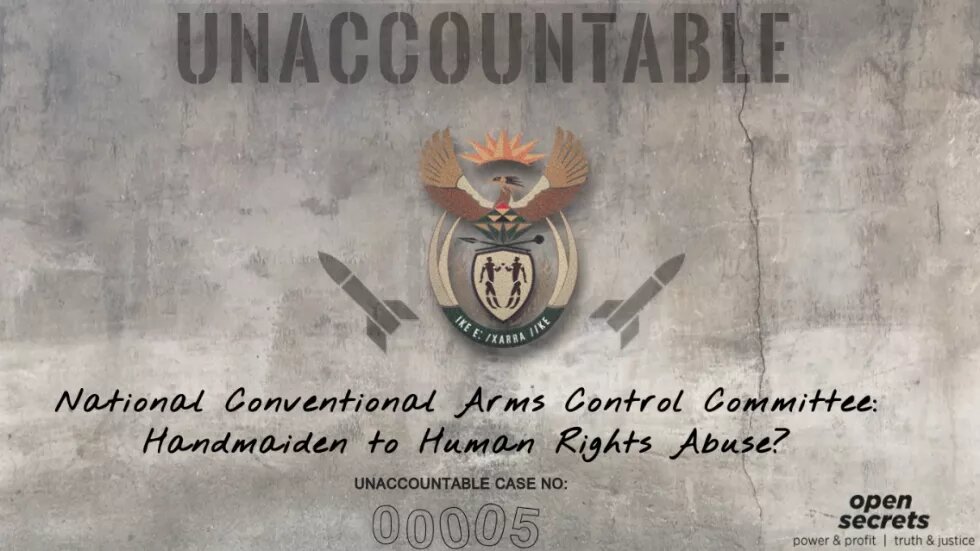See Part 4 in this series here: Rheinmetall Denel Munition: Murder and Mayhem in Yemen, Part 3 here: Dube Tshidi & The FSCA: Captured Regulator?, Part 2 here: Liberty — Profit over Pensioners and Part 1 here: Dame Margaret Hodge MP — a very British apartheid profiteer.

South Africa's arms trade regulator has failed in its mandate to monitor the export of weapons to countries that, among other things, abuse human rights, or wage war against their own citizens. This begs the question, who will guard the guards themselves?
Apartheid South Africa was steeped in secretive arms deals with clandestine transactions propping up the regime. The National Conventional Arms Control Committee (NCACC) was created at the cusp of democracy ostensibly as “guardians” who regulate the flow of weaponry across South Africa’s border. No longer would money and brutal geopolitics dictate who we sell weapons to.
This was a significant undertaking for the democratic order – the world’s 10th largest arms exporter (in 1994), had a history of supplying weapons to countries such as Iraq and Iran during the bloody war of the 1980s, as well as to Rwanda.
But as we saw in Unaccountable 0004, arms companies like Rheinmetall Denel Munition have until very recently profited from arms sales that appear to be linked to murder and mayhem in Yemen.
This is the account of a failed regulator which, despite some signs of progress, has over the past two decades acted as a handmaiden to controversial arms sales that are undeniably linked to human rights abuses.
The NCACC consists of ministers and deputy ministers, and has an undeniably critical role – it is effectively meant to prohibit the country from contributing to the violation of human rights and is meant to enforce the Conventional Arms Control Act.
This act is aimed at ensuring the country upholds international law and commitments, including United Nations Security Council arms embargoes, and does not transfer arms, which “are likely to contribute to the escalation of regional military conflicts”.
Furthermore, when arms are exported or ownership transferred, the country set to receive the arms has to provide an undertaking that these will not be resold, re-exported, or transferred again without South Africa’s approval. This agreement needs to be reflected in an end-user certificate.
The law empowers the NCACC to conduct an inspection, or investigation, inside, or outside South Africa, into any conventional arms trade.
The watchdog has a volley of other requirements under the act, including that at the end of the first quarter of each year it presents to Parliament, and releases publicly, an annual report on its exports concluded over the preceding calendar year.
But since its inception, it stands accused of failing to thoroughly execute its expansive job.
********



